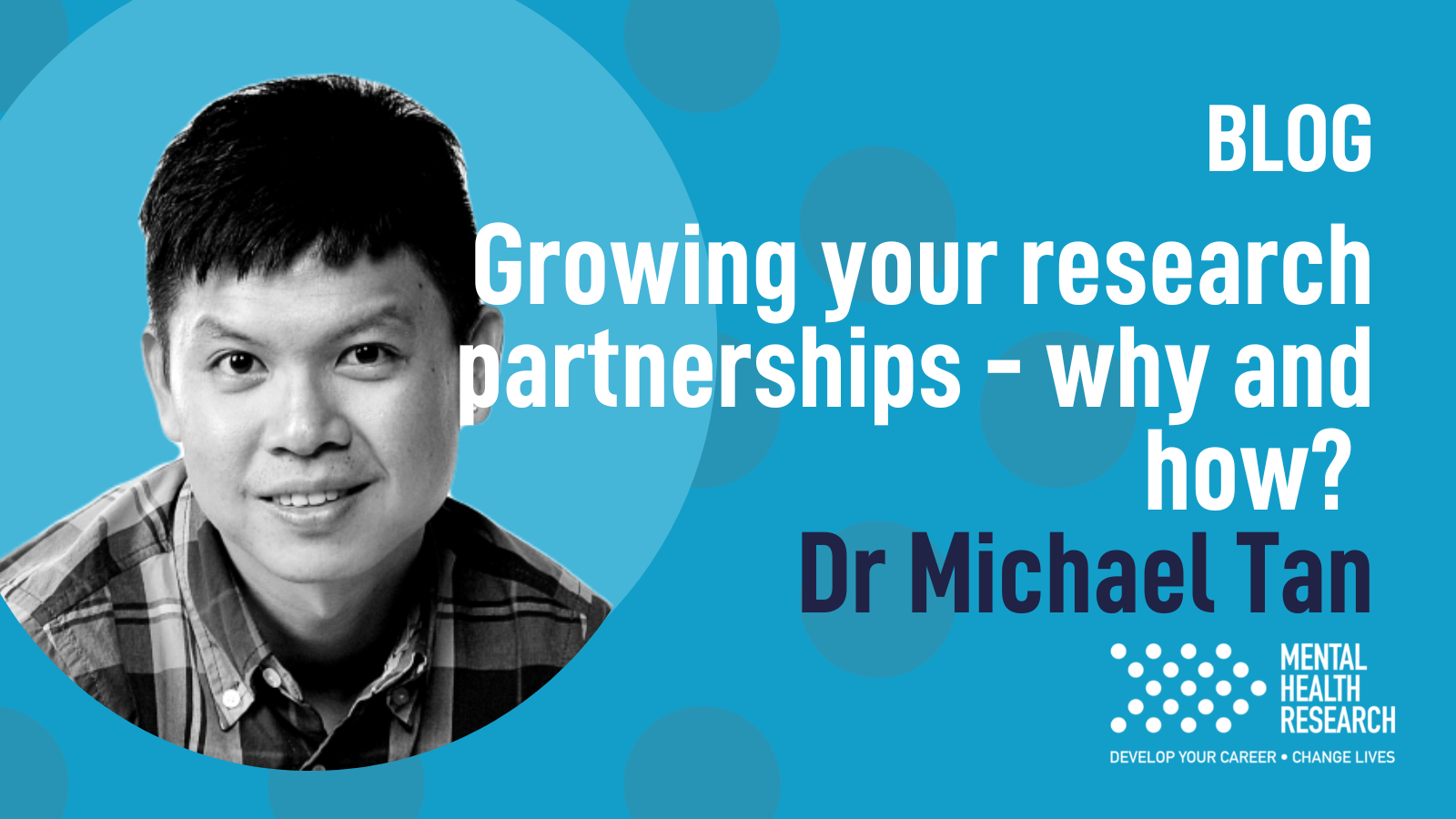
Why is there a growing appreciation and a need for interdisciplinary collaboration in mental health? Where do we begin? What can facilitate interdisciplinary collaboration? Can we get better at collaboration? GROW 2022 cohort member and researcher at Lab4Living, Dr Michael Tan, reflects on how you set up collaborative research projects in mental health – why is it so important? And how should you approach it if you’ve never worked with researchers outside your own field?
The world is ever more complex, volatile, uncertain and ambiguous. The hyperconnected and hyperstimulated societies that many of us live in, have destabilised existing ways of life, work, and leisure. Phenomena such as digital burnout, social isolation, and the upheaval caused by the recent COVID-19 pandemic, while challenging our habits, also demands and offers opportunities for new perspectives, approaches, and innovations to emerge, including the way we view and address mental health and wellbeing.
My own work in mental health interrogates and aims to develop new pathways of human caring by exploring possibilities in creative practice. I have an arts/design background and I then pursued a Master in Photography and Urban Culture, before embarking on my interdisciplinary PhD, informed by health geography which stimulated my thinking around care, health and wellbeing, and the arts.
My interest in interdisciplinary collaboration in mental wellbeing is largely informed motivated by a relational understanding of health, where mental health and wellbeing are afforded and shaped by a network of things involving resources such as knowledge, processes, materials. The interaction, connections and relationships that individuals, groups and communities are able to develop and have access to, have consequence to health and wellbeing outcomes. Moving beyond and expanding on the medical/pathological model, such a perspective considers a broader dimension of health that includes physical, social, emotional, spiritual, intellectual, vocational, and environmental dimensions. It asks who else, how, and what else we can mobilise to support human flourishing.
My cross-sectoral work has included work with national agencies such as the Agency for Integrated Care and the National Arts council in Singapore to enhance the quality of life in residential care with creative arts engagements, and an ongoing project with colleagues in geriatric and psychology in Canada and Singapore to understand the effect of participatory museum activities on frailty in older community dwellers.
Interdisciplinary collaboration is more than assembling a group of people with different expertise, experience, and background. It is akin to cultivating a relationships which involves dating, matchmaking, developing understanding, discovering, and nurturing. It also throws up ideological, interpersonal, methodological, practical, ethical challenges and concerns.
Interdisciplinary collaboration throws up ideological, interpersonal, methodological, practical, ethical challenges and concerns.
It helps to approach these with a spirit of curiosity (adopting a beginner’s mindset – ie openness and willingness to learn and explore) and respect (acknowledge, embrace and negotiate differences or things that seems less familiar). Before embarking on a collaboration, I personally find it helpful to allocate space and time with potential collaborators to consider and share the following: What topics interest to you? What do you understand or mean when you refer to….? What do you aspire and aim to achieve? Where are the overlaps? How might our expertise and experience, complement, strengthen, expand current understanding, thinking, praxis, and solution?
I personally find it helpful to consider and share the following: What topics interest to you? What do you understand or mean when you refer to….? What do you aspire and aim to achieve? Where are the overlaps?
I appreciate the challenges and opportunities interdisciplinary collaboration present. It keeps me on my feet and exercises reflexivity and positionality. I am also excited by the alchemy each collaboration yields. Can we get better at collaboration? I believe we can. “Failure is the mother of success” says an ancient Chinese proverb. If we allow ourselves to see every setback as a chance to learn, grow and gain insights, with faith, tenacity, gentleness, success could be waiting for us around the corner. May these words of Samuel Beckett urge us on: “Ever tried. Ever failed. No matter. Try again. Fail again. Fail better.”
Dr Michael Tan was a member of the 2022 GROW programme cohort.
Applications for the 2023 GROW programme are now open. The deadline is Wednesday 29 March, 10am.
More on Michael’s work:
- Lab4Living: https://lab4living.org.uk/
- Cross sectoral work with the Agency for Integrated Care and The National Arts Council (See Sparks! Artist residency and art wellness exhibition, SPARKS! Art For Wellness Toolkit): https://www.aic.sg/care-services/aic-wellness-programme
https://www.youtube.com/playlist?list=PL3cwymGftEsw_5TyBml6hKdy34RZM6jp-
Michael’s website: https://michaeltankb.net/
